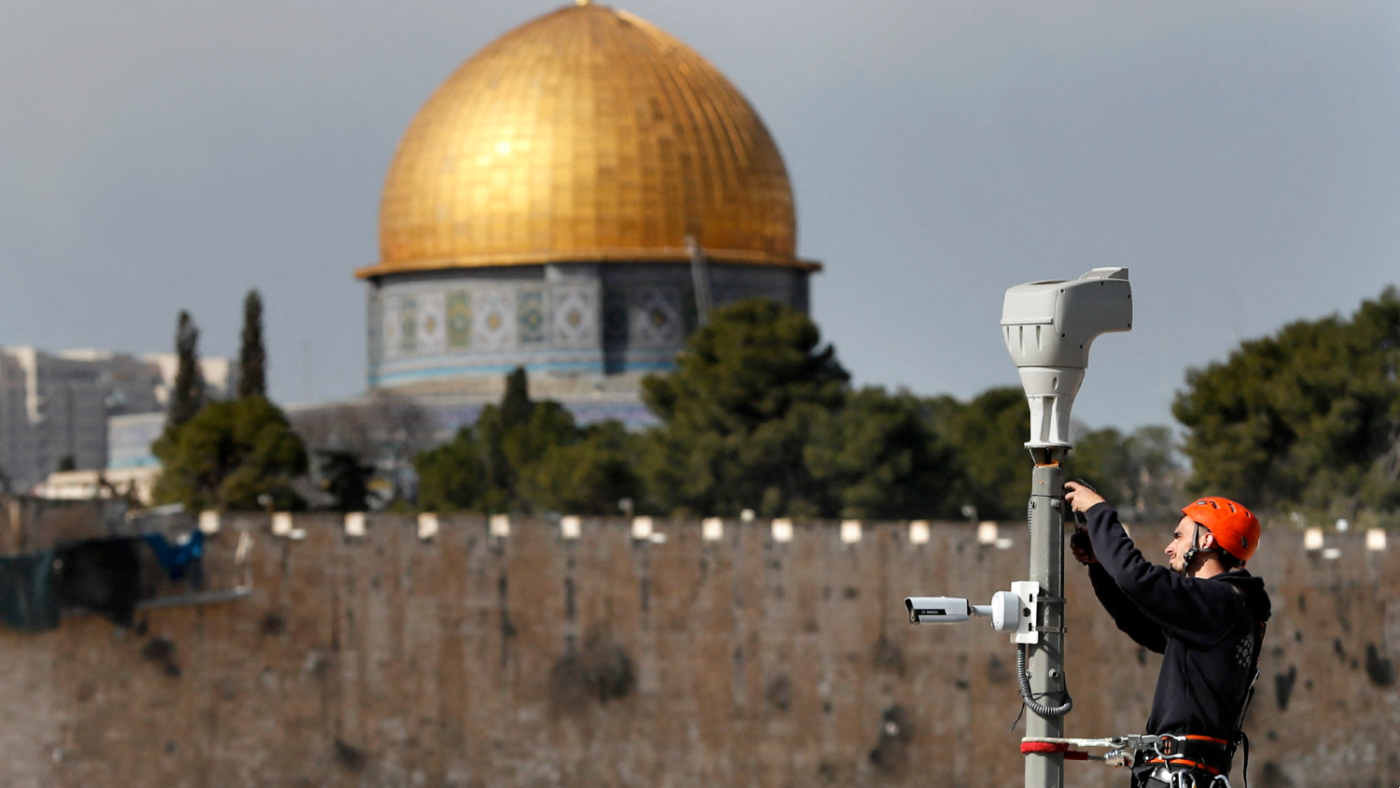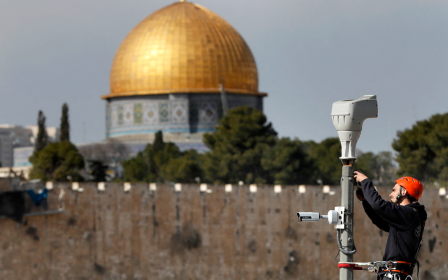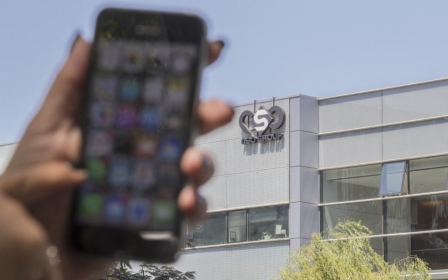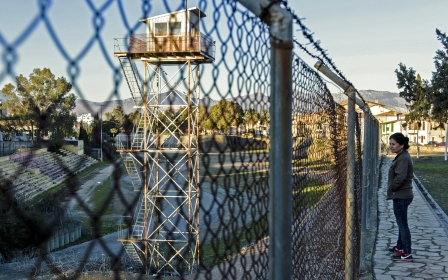Wolf Pack: Israel's accelerated use of facial recognition is ‘automated apartheid'

Israel is accelerating the use of facial recognition in the occupied West Bank to track Palestinians and restrict their freedom of movement, according to a new report by Amnesty International, in a development the organisation has labelled “automated apartheid”.
In occupied East Jerusalem, Israeli police are expanding a city-wide surveillance network with a vast facial recognition system known as Mabat 2000. The system allows Israeli authorities to hone in on protesters and keep Palestinians under constant observation, even as they go about their ordinary daily activities.
The "Wolf Pack" system is a programme employed by the Israeli military with the aim of storing a database of profiles of every Palestinian in the West Bank, according to Amnesty.
Meanwhile, Palestinians in Hebron are forced to stand in front of fenced checkpoints where cameras scan their faces. Software - known as Red Wolf - uses a colour-coded system to tell Israeli soldiers whether Palestinians should pass, be interrogated or detained.
The system eventually learns the faces of regulars passing through the checkpoint. If data on an individual does not exist, they are enrolled into Red Wolf without their knowledge.
New MEE newsletter: Jerusalem Dispatch
Sign up to get the latest insights and analysis on Israel-Palestine, alongside Turkey Unpacked and other MEE newsletters
Elsewhere, Palestinian residents of Hebron told Amnesty that Israeli-installed cameras and sensors have been directed into the private homes and bedrooms of Palestinian families.
“The constant surveillance Palestinians face means they not only live in a state of insecurity, but they are also at risk of arbitrary arrests, interrogation, and detention,” Amnesty authors said.
A counterpart technology deployed at checkpoints, called Blue Wolf, is available on smartphones. It was rolled out as part of a broader surveillance policy initiated by the Israeli army in 2016 and has been described as the “Facebook for Palestinians”.
The software's mobility means that facial recognition technology is proliferating beyond checkpoints.
According to Amnesty, the Israeli military is increasingly conducting “intelligence mapping” raids where soldiers raid Palestinian homes with no suspicion of any wrongdoing among the occupants for the purpose of mapping their facial characteristics.
In February 2022, Amnesty released a report labelling Israel an apartheid state, making it the latest organisation to join a cadre of human rights groups that have used the term to describe Israel's discriminatory treatment of Palestinians.
Israeli soldiers' mobile phones
“Before 2021, the facial recognition technology was only at the checkpoints, but since 2021 it’s in the hands of every soldier in their mobile phones. The soldier scans our faces with the phone camera, and suddenly their behaviour towards us changes because they see all the information,” an activist from Hebron told Amnesty International.
In Hebron, the divide is particularly stark.
The city is home to about 200,000 Palestinians who must pass through surveillance checkpoints to fulfill daily requirements like going to work and grocery shopping. The 900 or so Jewish settlers who live in the city under heavy Israeli military protection do not pass through the checkpoints.
The technology has also proliferated in the occupied East Jerusalem neighbourhoods of Sheikh Jarrah and Silwan. In 2018, Israeli authorities installed a permanent checkpoint at the Damascus Gate entrance to the Old City of Jerusalem, and surveillance efforts ticked up following the 2021 protests against Sheikh Jarrah evictions.
According to the report, Palestinian residents of Silwan are “increasingly watched from every angle” with towering surveillance poles looking directly into private homes. Meanwhile, in the Sheikh Jarrah neighbourhood, Amnesty researchers reported one to two cameras within every 15 feet.
The cameras in the area appeared to be produced by Hikvision, a Chinese surveillance camera maker, and TKH Security, a Dutch manufacturer. The cameras are used by a central command and control centre operated by Israeli police to monitor Palestinian residents 24 hours a day, seven days a week.
“Israel uses technology as a means of controlling us, of deterring us not only from protesting but also from living our normal life,” a Palestinian journalist told Amnesty.
This article is available in French on Middle East Eye French edition.
Middle East Eye delivers independent and unrivalled coverage and analysis of the Middle East, North Africa and beyond. To learn more about republishing this content and the associated fees, please fill out this form. More about MEE can be found here.





